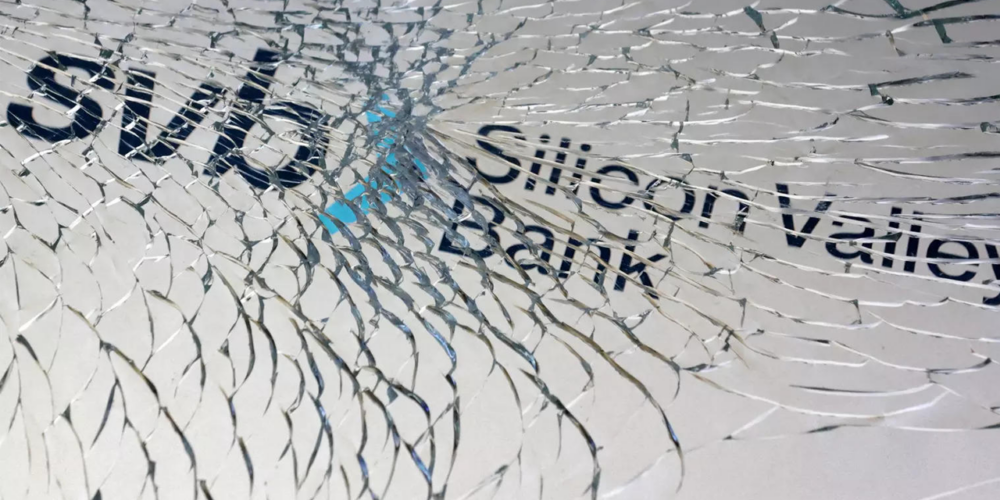Within a week of its closure, the Financial Times was reporting that the value of global bank stocks had fallen $460 billion. Fearing meltdown from contagion, state-controlled treasuries across the capitalist order made huge sums available to bail out troubled institutions. Devotees of lightly regulated free-market capitalism, paradoxically, expressed no qualms about demanding unlimited state intervention to save their fortunes. So, what on earth happened?

On the surface the answer appears straightforward. SVB had invested (or gambled) too much of its depositors’ capital in assets that couldn’t be quickly realised and made negotiable without incurring severe loss. Since a majority of the bank’s clients were from the currently struggling high-tech sector, this caused a crisis. Many of these companies sought to withdraw their savings to cover immediate shortfalls in income. As word spread that SVB was having difficulty meeting its obligations, panic spread, customers withdrew their deposits causing the bank to collapse.
The real question, though, is how or why did the failure of one bank cause such turmoil across the financial sector and on a worldwide scale? In reality, the reason for the crisis runs deeper than a localised liquidity problem leading to a widespread stampede. The problem is fundamentally one relating to contemporary capitalism or more accurately, finance capitalism.
Over the past four decades, the implementation of neoliberal economic policies in the US, EU and Britain has accelerated the outsourcing of manufacturing overseas. A consequence of this has been increased importance of and growth of the financial services industry in the aforementioned regions. This has resulted in two distinct yet ultimately related phenomena.
First, due to the decline of an indigenous manufacturing sector, financial institutions in the above-mentioned areas need to export finance in order to gain and maintain profit. This syndrome was identified over 100 years ago by Lenin in his classic, Imperialism, the Highest Stage of Capitalism. Ominously, he underlined the determination of early 20th century finance-exporting imperialist powers to access and dominate global markets and to do so with military force. Little imagination is required to see parallels with the present day.
Second, because of the dominance of the financial sector in these economies, additional profits are also sought through a variety of inherently risky investment vehicles. Hedge funds, PFIs, venture capital institutions, crypto currency agencies, corporate bond markets, debt trading are just some of these instruments. All of these revolve around speculation rather than material production.
Invariably, greed and the impulse to maintain competitive rates of profit lead to greater risk-taking, amounting to gambling and leading to the inevitable bust. This financial matrix always involves the banking sector at one level or another. Consequently, failings within the former can quickly become a crisis for the latter and thus occasionally, a threat to the entire free market system.
It is at that stage the capitalist state intervenes directly in order to forestall widespread meltdown (with the underlying threat of social revolt). For example the US treasury moved rapidly to guarantee SVB depositors and provide the banking sector with access to emergency funding. The Swiss government made over $50 billion available to crippled Credit Suisse bank before forcing it accept a takeover by its rival UBS. Elsewhere, ECB and Bank of England were buying dollars to ensure market liquidity. As James Connolly said, “governments in capitalist society are but committees of the rich to manage the affairs of the capitalist class…”
How this turmoil will impact on Ireland is still unclear. Nevertheless, it’s unlikely that we shall escape unscathed since this country is embedded in the market-driven part of the world economy. And on that global level there exists the almost insoluble conundrum of reconciling the need to curb inflation on one hand and to print money to bail out banks on the other.
The fallout from such practices, at best, will be a difficult economic environment which will be impossible for us to avoid. Should this cause a reduction in the tax-take from the now challenged high-tech companies on which the Dublin exchequer depends so heavily, the implication for Ireland’s working class is bleak. Yet again, austerity will impact harshly on the poorest.
There is only one remedy capable of ending these frequent rounds of economic turmoil with attendant hardship and misery for working class communities. The solution is an economy planned and designed solely to answer people’s needs rather than a system catering for enrichment of the few: it’s called socialism.
 |
Tommy McKearney is a left wing and trade union activist. He is author of The Provisional IRA: From Insurrection to Parliament. Follow on Twitter @Tommymckearney |







Connollys words, taken from Karl Marx, are as relavent today as when they were first written. "Capitalism is not intelligent, it is not beautiful, it is not just, it is not virtuous and it does not deliver the goods". Quote from John Maynard Keynes, hardly a rampant Marxist.
ReplyDeleteCaoimhin O'Muraile